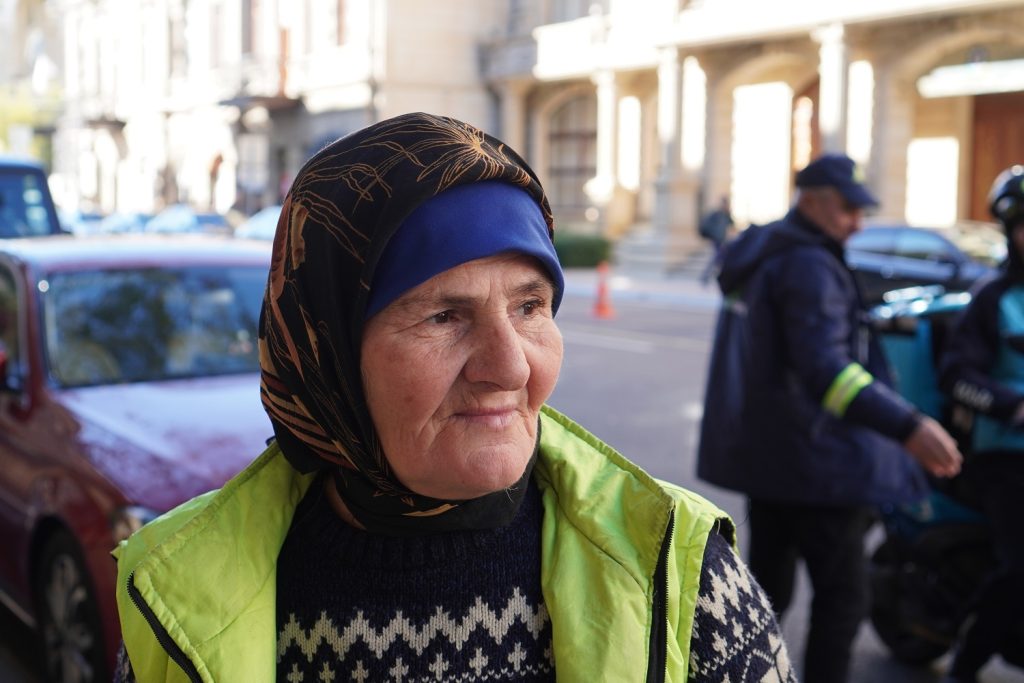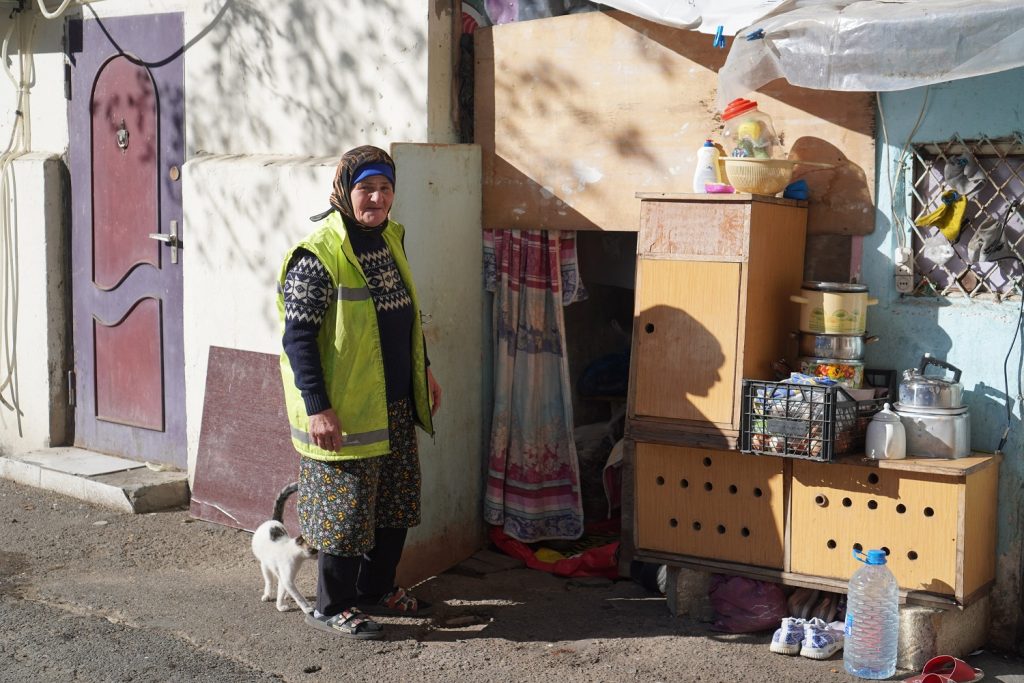"It's dangerous work, but it's better than unemployment". Cleaners on highways in Azerbaijan
Cleaners on highways in Azerbaijan
“I’ve been hit by a car three times. Yesterday it hit me and drove off. It was four o’clock in the morning. Accidents are more common at that time. When it’s dark, the street lights are off. The car hit me and drove on. I couldn’t even see what kind of car it was. I was lucky I wasn’t seriously injured. My back was a little sore, but today it’s better, so I went to work.”
Nabat Maharramova is 63 years old. For the last 21 years she has been working as a cleaner on the central streets of Baku. Nabat goes out every morning at four o’clock at dawn to sweep the roads where cars drive. She says it is dangerous to work on the highway, but she has no other means. Although it is dangerous, she is glad that she has at least some work.
Nabat says that after the first two accidents she went to the police, but the drivers who hit her were not found. The last time she did not even complain. Although all three accidents occurred during work, the employer was not held responsible. She paid for her own medical treatment each time.
- A trip to the “Alumni House,” whose address even Google Maps doesn’t know
- The number of diabetics in Azerbaijan has tripled in the last 10 years
- The number of Russian-language students in Azerbaijan has increased by 50,000 in 5 years
News in media about deaths of highway cleanup workers

Nabat Maharramova is one of hundreds of janitors cleaning the busy avenues and highways of Azerbaijani cities, including the capital Baku, who has had an accident during their work. But not all are lucky as Nabat. In the media we often see news about cleaners who were killed after being hit by a car while working.
The latest fatal accident occurred on October 30 this year in Baku’s Surakhani district on an expressway leading to the airport. Peri Mammadova, 54, a resident of Lazilar village of Tovuz district, was hit by a car while working. The woman, who had come from the provinces to the capital in search of a livelihood, died on the scene.
In March this year, a car hit two women sweeping the road in Yevlakh. One of them, 49-year-old Sabina Askerova, died.
Although the issue of replacing cleaners with specialized machinery in cleaning dangerous roads is often discussed, the problem has not been resolved for many years.
“On dangerous roads, cleaners should be replaced by sweepers”
A safe system of street cleaning should be created in Azerbaijan long ago, Milli Majlis MP Fazil Mustafa told iqtisadiyyat.az website.
“In many foreign countries people no longer sweep the roads, they are cleaned by special machines. If a person sweeps the roads, there will always be a risk of danger Therefore, technical means should be used to clean the streets.
Of course, replacing people with machinery means that tens of thousands of people will remain unemployed.”
According to the deputy, in order to solve the life-threatening situation, it is necessary to find a solution to the unemployment problem that will arise later.

How should the safety of janitorial staff be ensured?
A number of measures need to be taken to ensure the safety of janitors, lawyer Inara Jamal says:

“For example, during work they should be provided with signaling devices, mobile barriers, reflective clothing so that drivers can notice them. Although these clothes are issued to janitors working on the central roads of the city, we do not see them worn by those who work in remote areas. As for the barriers, the janitors should put them on the area being cleaned so that the cars can correct their movements. We never see barriers while cleaning on the roads.”
The lawyer also notes that if an employee has an accident during, the responsibility for this falls on the employer.
“Every workplace must provide its employees with compulsory insurance. Damages to insured employees are reimbursed by insurance companies. To investigate accidents at work, the employer must report it to the state labor inspectorate on the same day, otherwise the company will be fined 1,000 to 1,500 manat [about $600-900]. The insurer must be informed within three working days of the incident. Compensation for damages is paid in the amount of the percentage of his or her loss of working capacity. If a worker’s salary is 300 manat and if he has lost 60-70 percent of his ability to work, he should receive a monthly salary of 70 percent of this 300 manat. In case of death, the payment is 100 percent.”
“They say if you complain, you’ll be out of a job.”
Zohra Khaniyeva (name is provisional) also works as a janitor. She sweeps the roads in one of the remoter districts of Baku. A few months ago she was hit by a car when she was crossing the road with a wheelbarrow containing cleaning products. The driver fled the scene.
“I said at work that I couldn’t walk on my foot, instead of hospital they sent me home. They said to rest for a week and it would go away. All that week I was squirming in pain at home. I had no money, I couldn’t even go to the hospital, I used ointments and that was it. Believe me, even now when it’s cold outside, my leg hurts,” she says, rubbing her right leg with her hand.

Most cleaners are reluctant to talk about their problems. About ten cleaners with whom we tried to arrange interviews said that their employers threatened to fire them if they talked to journalists. So they have to keep quiet to avoid losing their jobs.
Nabat, on the other hand, is in favor of talking regardless of the outcome:
“When they tell me, I answer, why should I keep quiet! I tell the truth, I do not make things up! The salary we get for sweeping roads is negligible. I, for example, receive 600 manats [about $350]. Of that, I pay 200 manat to the bank for a loan, and the remaining 400 manat goes to pay off the debts I take out every time to live until the end of the month.”
It is now two o’clock in the afternoon; Nabat’s lunch break is coming to an end. She is getting ready to go back to work. Until six in the evening she will have to sweep, picking up trash from the road between the cars that drive by.


















